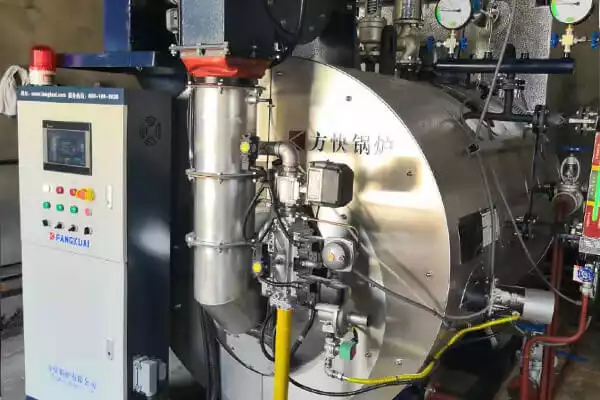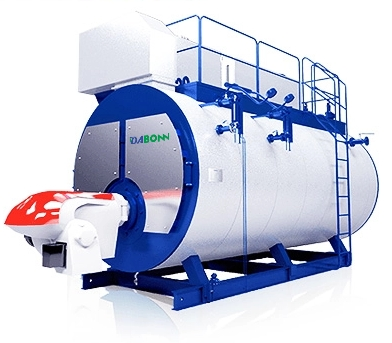
Giới thiệu
Có nhiều lý do tại sao áp suất lò hơi cần phải được tăng lên. trong bài viết này, chúng tôi sẽ thảo luận về những lý do phổ biến nhất khiến nồi hơi cần thêm áp suất và cách bạn có thể tăng áp suất đó.
Tại sao áp suất nồi hơi lại quan trọng?
Áp suất nồi hơi rất quan trọng vì nó kiểm soát lượng nhiệt sinh ra và thất thoát, cũng như tốc độ dòng chảy qua hệ thống của bạn. A higher boiler pressure means that more steam will be generated, which increases your efficiency and reduces energy costs.
Boiler pressure also affects how much water is used in each cycle of operation. If you have a high-pressure boiler system, there will be less loss due to evaporation during heating cycles compared with lower-pressure systems (about 10% less).
What causes low boiler pressure?
The Low Water Level in the Boiler
Một trong những lý do cơ bản khiến áp suất nồi hơi thấp là mực nước trong hệ thống không đủ.. Điều này có thể do bay hơi theo thời gian hoặc đổ đầy không đúng cách trong quá trình lắp đặt hoặc bảo trì. Mức nước không đủ có thể dẫn đến giảm hiệu quả truyền nhiệt và có khả năng làm quá nhiệt các bộ phận, dẫn đến sụt áp.
Lò hơi bị rò rỉ
Nồi hơi bị rò rỉ có thể dẫn đến mất nước từ hệ thống, gây giảm áp suất. Rò rỉ có thể xảy ra do các bộ phận xuống cấp, con dấu bị hư hỏng, hoặc ăn mòn theo thời gian. Những rò rỉ này có thể nhỏ và khó phát hiện ban đầu, giảm dần áp suất trong hệ thống.
Van giảm áp bị rò rỉ
Chức năng của van giảm áp là giải phóng áp suất dư thừa và ngăn nồi hơi bị quá áp. Tuy nhiên, một van bị trục trặc có thể dẫn đến mất áp suất liên tục. Nếu van này bị rò rỉ, nó có thể không duy trì hiệu quả mức áp suất mong muốn.
Máy bơm cấp liệu nồi hơi bị rò rỉ
Các bơm cấp nồi hơi chịu trách nhiệm chính trong việc giữ mực nước trong nồi hơi trong phạm vi an toàn. Nếu máy bơm này bị rò rỉ, nó có thể dẫn đến việc cung cấp nước không đủ và sau đó áp suất lò hơi thấp. Rò rỉ có thể xuất phát từ các bộ phận bị hỏng hoặc phớt bị mòn.
Đồng hồ đo áp suất nồi hơi bị lỗi
Một đồng hồ đo áp suất bị trục trặc có thể cung cấp các bài đọc không chính xác, dẫn đến nhận thức sai về áp suất nồi hơi thực tế. Điều này có thể dẫn đến các điều chỉnh không cần thiết và khả năng giảm áp suất.
Nhiệt độ môi trường cao
trong thời tiết ấm áp hơn, the ambient temperature can affect the pressure reading in your boiler. Higher temperatures can cause the water to expand, resulting in increased pressure. Tuy nhiên, this isn’t a cause for concern as long as the pressure remains within safe limits.
What is the correct pressure for my boiler?
The pressure in your boiler is measured in pounds per square inch (tâm thần). The more water you have and the hotter it gets, the higher the pressure will be. The correct pressure should be between 15 Và 22 PSI.
How to top up the pressure on a boiler?
Nếu bạn cần tăng áp suất trong nồi hơi của mình, làm theo những cách này:
Sử dụng đúng lượng nước. Mục đích của nồi hơi là đun nóng nước, vì vậy bạn cần chắc chắn rằng có đủ trong đó. Nếu không, thêm nhiều hơn nữa cho đến khi bạn đạt đến điểm có khoảng cách bằng nhau giữa mỗi bong bóng trên cùng và bên dưới. Điều này có nghĩa là tất cả các bộ phận đang được sử dụng hiệu quả!
Kiểm tra đồng hồ đo áp suất của bạn thường xuyên để đảm bảo rằng mọi thứ đều hoạt động bình thường. Nếu không thì điều chỉnh cho phù hợp cho đến khi mọi thứ hoạt động tốt trở lại (this might mean adding more coal or turning down some knobs).
Make sure that nothing else needs replacing before doing anything else. Such as changing out old parts or adding new ones.
Last, you need to ensure that you’re not over-pressurizing it. The best way to do this is by using a pressure relief valve.
What to do if the boiler does not repressurize?
If the boiler doesn’t repressurize, you can follow these ways. Identify the root cause of the problem and ensure your boiler is back to optimal performance.
Call a Professional
If you find that your boiler is not repressurizing despite your efforts, it’s advisable to call a professional boiler technician. They have the expertise and tools to diagnose the issue accurately and recommend the appropriate solution.
Check for Boiler Leaks
Leaks within the boiler system can result in a drop in pressure. Follow these steps to check for leaks:
Một. Inspect visible components: Carefully examine the boiler and its connections for any signs of water leakage. Such as damp spots, puddles, or visible water trails.
b. Monitor pressure changes: If the pressure drops significantly shortly after repressurizing. it might indicate a hidden leak within the system.
Check the Pressure Gauge
Một. Compare readings: Use a reliable pressure measuring tool to compare the reading on the boiler’s pressure gauge. If there’s a significant discrepancy, the gauge might be faulty.
b. Consider replacement: If the pressure gauge consistently shows incorrect readings, consider replacing it with a new, accurate gauge.
Ensure Proper Pressure Relief Valve Function
The pressure relief valve is essential for preventing over-pressurization. Make sure it’s working correctly:
Một. Observe the valve: The pressure relief valve should release small amounts of water during operation. If water is continuously dripping from the valve, it might be malfunctioning.
b. Test the valve: Consult your boiler’s manual for instructions on how to test the pressure relief valve’s functionality. Follow the provided procedure to ensure it’s operating as intended.
câu hỏi thường gặp.
Is low boiler pressure dangerous?
Low boiler pressure can be a concern as it might indicate leaks, system inefficiencies, or malfunctions. While not necessarily dangerous, it can lead to reduced performance and potentially cause damage if not addressed promptly.
What PSI should a boiler run at?
The recommended pressure range for most boilers is around 1 ĐẾN 1.5 bars when cold. This corresponds roughly to 15 ĐẾN 22 PSI.
Does low boiler pressure affect hot water?
Yes, low boiler pressure can affect the hot water supply. Trong vài trường hợp, it might lead to reduced hot water output or inconsistent water temperature.
Can I increase the boiler pressure when hot?
It’s generally not recommended to adjust the boiler pressure when the system is hot. Boiler pressure adjustments should be made when the system is cold to ensure accurate readings and safe operation.
Can I fix the boiler pressure myself?
Minor adjustments to boiler pressure can be done by homeowners, but more complex issues should be addressed by a professional boiler technician to ensure safety and proper diagnosis.
What should boiler pressure be when the heating is off?
When the heating system is off, the pressure gauge is typically around 1 ĐẾN 1.5 bars (15 ĐẾN 22 PSI), but exact values may vary depending on the specific boiler model and manufacturer.
Phần kết luận
With a little bit of knowledge and the right tools, you can increase boiler pressure easily. It’s important to understand that not all boilers require the same amount of pressure.
Get your best price
Quickly compare 3 FREE quotes
- Engineer quick quote
- The overall delivery speed is fast
- Financial choice
- Low installation costs and cost savings
25 years+ of boiler R&D
More than 20 innovative technologies
